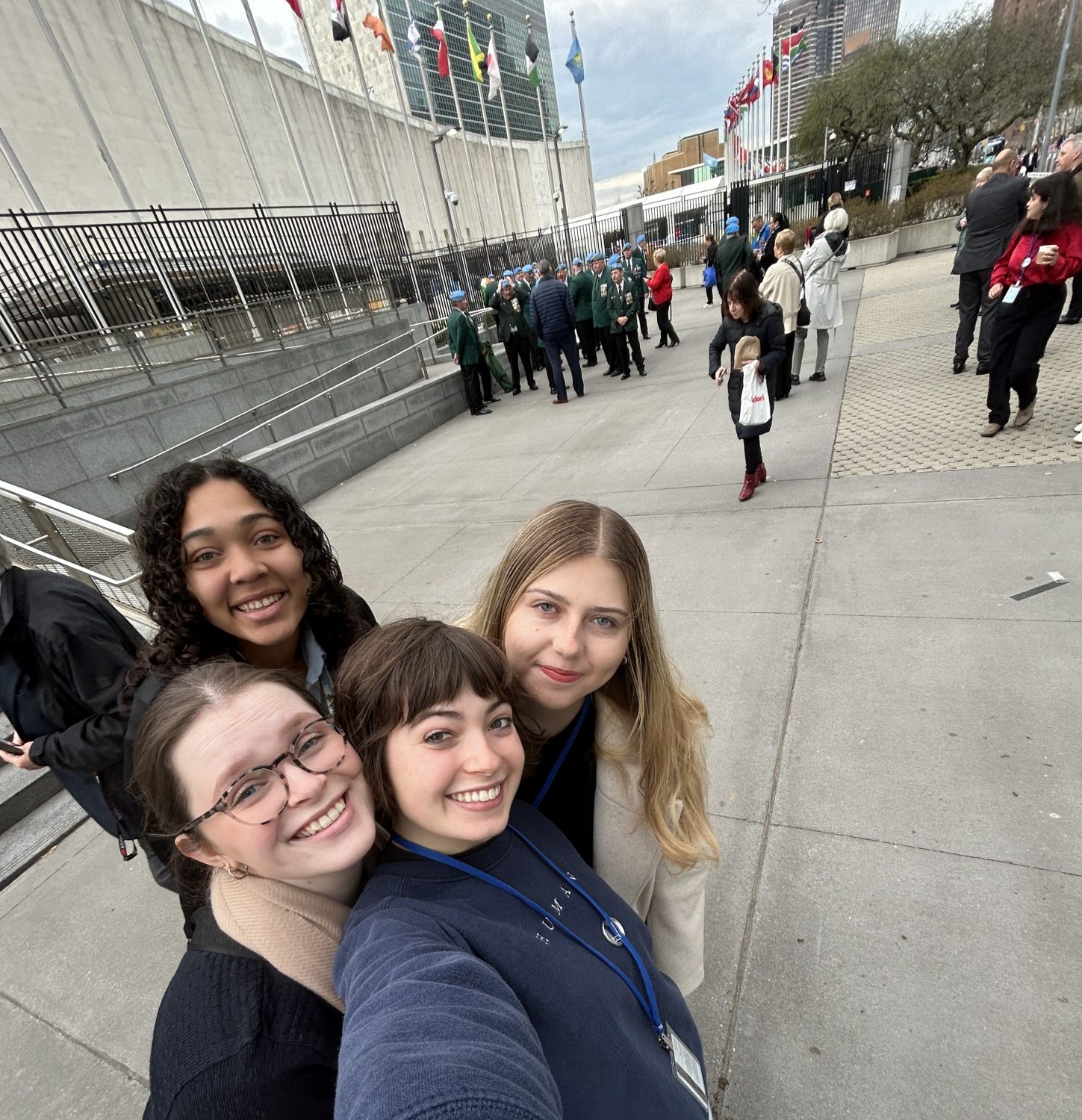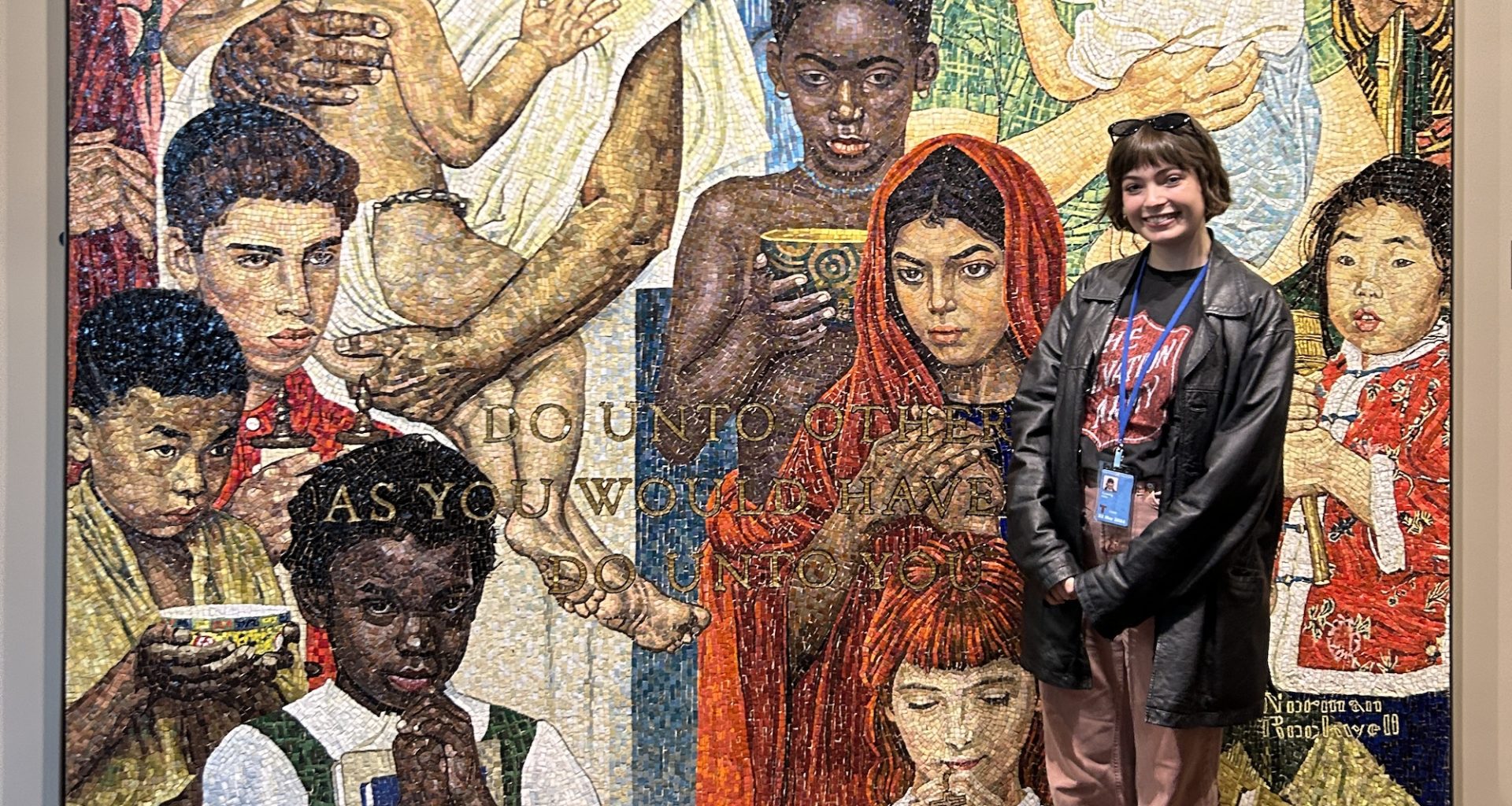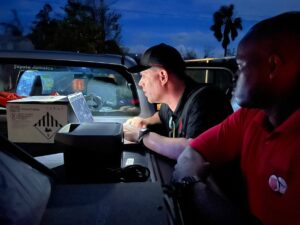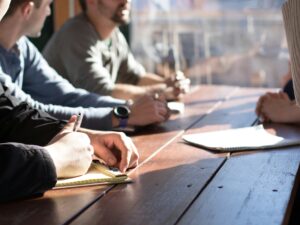I found myself running down 44th Street in New York City with my Australian friend I had met just the day before. With our bagels in hand, we were nearly late to a meeting on feminist financing, and we still had two blocks to go.
I was attending the Commission on the Status of Women, a two-week conference hosted by the UN March 11-22 that brings together governments, organizations and activists from all around the world. It is an annual event, dedicated solely to the advancement of gender equality globally.
Each year, a priority theme is chosen: this year’s theme was “accelerating the achievement of gender equality and the empowerment of all women and girls by addressing poverty and strengthening institutions and financing with a gender perspective.”
With the priority theme in mind, representatives from 45 member states come together and draft up a document outlining the work they will commit to doing. Essentially, participants aim to work themselves out of a job by developing strategies to achieve global gender equality.
As a 20-year-old acting major, I did not serve as the representative for the United States. Instead, I attended CSW68 as a girl advocate through The Salvation Army’s International Social Justice Girls’ Group. The group, which is comprised of young Salvationist women from all over the world, was created three years ago to foster conversations about global issues, and to take action to address them.
As a Girl Advocate, I wasn’t the one drafting up a grand statement document for the future of gender equality. In fact, while I was there, I only went inside the UN building twice…and one of those times was just to visit the gift shop. So what was I doing, other than spending the Western Territory’s budget on a New York bagel?
The way I saw it, my job was to listen.
I began each day with a devotion hosted by Ecumenical Women, a coalition of multiple Christian denominations affiliated with the UN. Over the course of four days, I attended 12 different parallel events, and took 25 pages of notes. Each meeting was put on by a different non-governmental organization, focused on a different issue facing women around the globe.
I was able to hear experts in womens’ advocacy share real struggles women face, and the steps that must be taken to address them. The Salvation Army has a presence in nearly every area discussed in the events I attended. Learning about all of these different issues was simultaneously humbling, enraging, overwhelming and inspiring.

One of the events I attended was on the way that gender biases are being encoded into AI programs. Essentially, there are eight main data sets that are treated as benchmarks, used to help most AI systems to learn. All of these data sets are from the global north, and they treat a white, able-bodied man as the human standard.
This has huge implications for human rights, because these AI systems are not being checked for discrimination before being put into use.
Technology develops quickly, but policy develops slowly, resulting in great injustice for women and all their intersections. I found this event particularly fascinating because it was one of the only areas The Salvation Army isn’t currently heavily involved in.
If The Salvation Army were to unknowingly utilize AI that learned from biased data, we run the risk of perpetuating the problem by taking actions based on that biased data. By getting involved in this conversation now, we can better love and serve our neighbors through advocating for them in this new digital space.
My time at CSW68 opened my eyes to just how much the Army is involved with the UN. The Salvation Army’s International Social Justice Commission building was one of only three spaces that hosted countless parallel events. Honestly, engaging with other organizations with the intention of advancing justice everywhere felt like a return to the very beginnings of The Salvation Army.
I left New York ready to return to my local corps, feeling inspired to serve my community more holistically. It is my prayer that The Salvation Army will encourage more of its soldiers and officers to attend CSW and comparable conferences in the future. By inspiring more soldiers and officers to create change in their local communities, we can advance our mission of meeting human needs in God’s name without discrimination. I am so excited to be a part of this work.
Do Good:
- Are you best suited to Do Good in disaster relief? Mental health? Social justice? Take our What’s Your Cause quiz and discover where you can make the biggest impact today.












